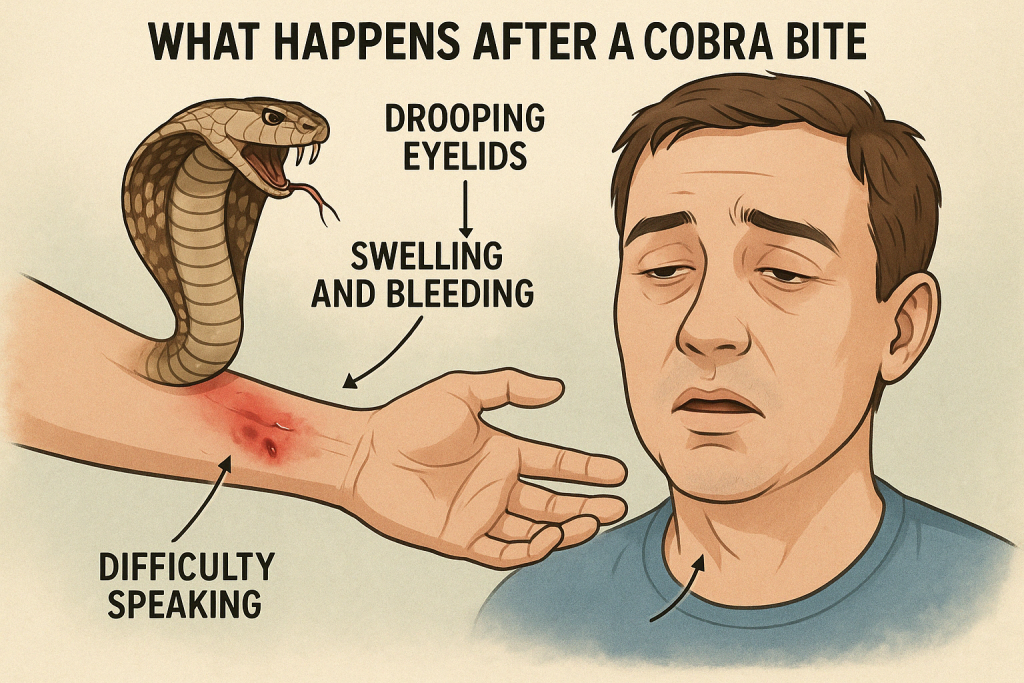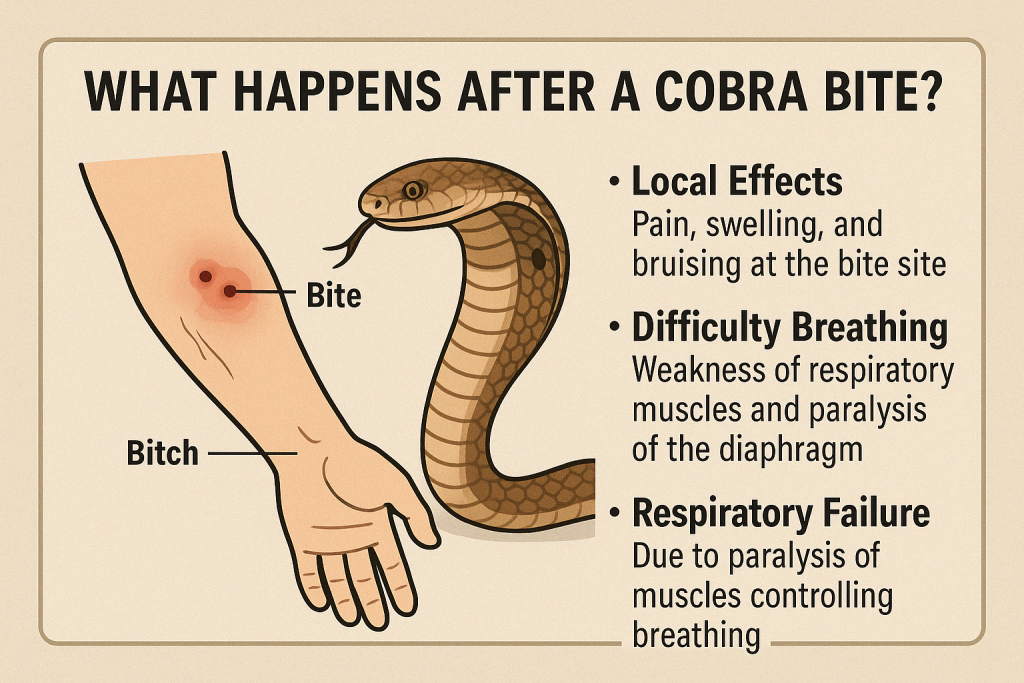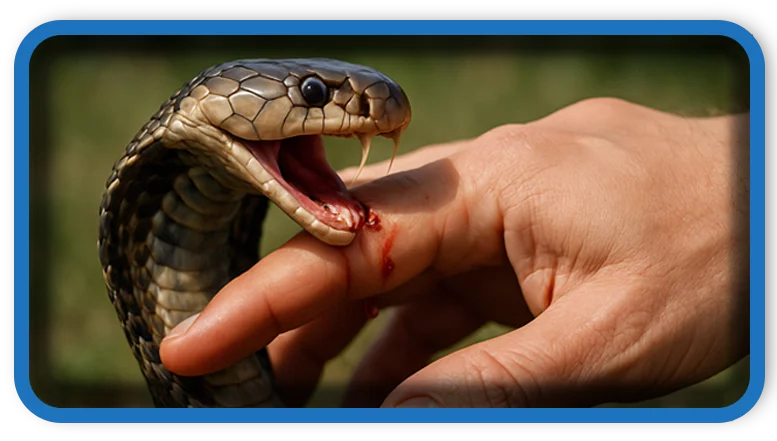⏲️ Estimated reading time: 4 min
A cobra bite can be life-threatening if not treated quickly. Learn the symptoms, immediate actions to take, and how cobra venom affects the human body.
Understanding the Danger of a Cobra Bite
Cobra snakes are among the most feared in the world, not just because of their appearance, but because of their deadly venom. When a cobra bites, the effects on the human body can be swift and devastating. Cobras are known for their neurotoxic venom, which affects the nervous system and can lead to respiratory failure if not treated promptly.

What Happens Immediately After the Bite
When a cobra bites, the first sensation is usually a sharp pain at the site of the bite. This is often followed by redness and swelling. Unlike some other venomous snakes, cobras typically inject neurotoxic venom that attacks the nervous system rather than causing significant local tissue damage.
Depending on the species and the amount of venom delivered, symptoms can appear within 30 minutes. These may include:

- Numbness or tingling in the limbs
- Drooping eyelids
- Slurred speech
- Difficulty swallowing or breathing
- Weakness in the muscles
How Cobra Venom Affects the Body
Cobra venom contains powerful neurotoxins that disrupt nerve signals to muscles. This can quickly lead to muscle paralysis, including the diaphragm, which is essential for breathing. In serious cases, this paralysis can cause death due to respiratory failure.
In addition to neurotoxins, some cobra species also have cytotoxins that can cause localized tissue damage, blistering, and necrosis, although this is less common.
The Importance of Immediate Action
Time is critical in the case of a cobra bite. The faster a person receives medical care, the better the chances of survival. Here are the steps to take immediately after a bite:
- Stay Calm: Panic accelerates heart rate and spreads venom faster.
- Keep the Bite Area Still and Lower Than the Heart: This helps slow the venom’s spread.
- Call Emergency Services: Get medical help as quickly as possible.
- Avoid Harmful First Aid: Do not cut the wound, suck out venom, or apply ice or tourniquets.
- Apply a Pressure Bandage: If trained to do so, apply a bandage around the limb to slow the spread of venom without cutting off circulation.
Hospital Treatment and Antivenom
Once at the hospital, doctors will assess the severity of the bite. Antivenom is the only specific treatment for cobra venom and is administered intravenously. It works by neutralizing the venom in the body.

In severe cases, the patient may require:
- Oxygen therapy or mechanical ventilation if breathing is affected
- Intravenous fluids and medication to support blood pressure and organ function
- Pain relief and antibiotics to prevent secondary infections
Recovery and Long-Term Effects
Recovery from a cobra bite depends on how quickly treatment was received and how much venom was injected. Many people make a full recovery, but others may experience lingering effects like muscle weakness, fatigue, or anxiety.
Some bites can also leave physical scars if tissue damage occurred. In rare cases where treatment is delayed, the bite can result in permanent disability or even death.
Prevention Tips
Avoiding cobra bites is always better than treating them. Here are some safety tips:
- Be cautious in areas known for snakes, especially at night.
- Wear boots and long pants when walking in tall grass or forests.
- Never attempt to handle or kill a cobra.
- Use a flashlight when walking in the dark in snake-prone areas.
Final Thoughts
A cobra bite is a medical emergency that demands immediate attention. Knowing the symptoms and how to react quickly can save your life or someone else’s. Always seek professional medical help do not rely on home remedies or traditional cures.
Stay aware, stay safe, and respect wildlife from a distance.
🏷️ Tags: snakebite, cobra bite symptoms, snake venom effects, antivenom treatment, first aid snakebite, cobra danger, neurotoxic venom, snake bite emergency, survival tips, wildlife safety
Only logged-in users can submit reports.
Discover more from HelpZone
Subscribe to get the latest posts sent to your email.

